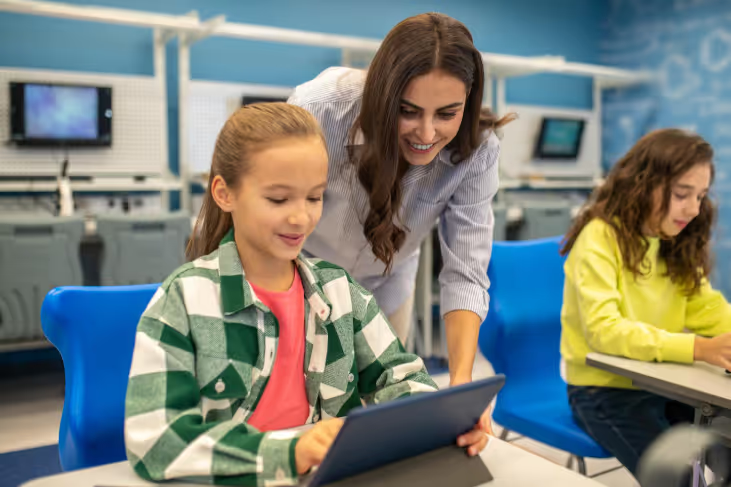Stay informed with our newsletter.
.webp)

.webp)

Teachers across 150 countries believe that four essential skills will play a defining role in shaping the future success of students. These skills are seen as crucial in determining whether learners will thrive or struggle in today’s fast-changing world. With the global education landscape evolving rapidly, educators emphasize that mastering these core abilities will be the difference between students excelling or falling behind, making them vital for long-term academic and personal growth.

In a world reshaped by artificial intelligence, climate change, and shifting economies, the path ahead feels unpredictable, and educators around the globe share the view that students will need more than grades alone to succeed. A major study by Cambridge International, involving over 3,000 teachers and 4,000 students from 150 nations, revealed four recurring skills that are critical for achievement: strong subject knowledge, effective self-management, clear communication, and the ability to adapt. Teachers emphasize that these areas will determine whether young people thrive or struggle in the uncertain future ahead.
The Cambridge report is not isolated in its findings. Research spanning psychology, education, and neuroscience supports the same conclusion: what young people carry into adulthood is not just information, but the capacity to apply it, regulate themselves, and communicate effectively.
Subject knowledge: A foundation that technology cannot replace
Despite the rapid development of AI, the Cambridge findings stress that deep subject knowledge remains vital, as it ignites curiosity and supports richer learning. Educators caution that focusing only on skill-building could weaken critical thinking. This echoes a 2006 paper in Educational Psychologist, which found that minimally guided instruction was less effective compared to direct teaching of essential knowledge. Their analysis showed that students without solid subject foundations struggled to transfer skills to new situations. In short, while AI can generate answers, students still need knowledge to frame the right questions.
Self-management: Building habits that last a lifetime
Teachers repeatedly pointed to the importance of self-management, explaining that today’s learners face greater levels of complexity, uncertainty, and distraction than earlier generations. Evidence shows that those who develop habits of focus and regulation enjoy better outcomes well into adulthood. Simple practices, like managing homework or limiting digital distractions, can create long-term benefits. A groundbreaking 2011 longitudinal study that followed 1,000 children in New Zealand for over 30 years, published in PNAS, revealed that self-control in childhood predicted adult health, financial stability, and even criminal behavior more accurately than IQ or family background.
Communication and oracy: The undervalued strength
Another pressing gap highlighted in the Cambridge report is oracy, or the ability to use spoken language effectively. Both students and teachers acknowledged that handling important conversations remains a challenge. As one teacher noted, knowledge is meaningless if students cannot express it. The importance of communication is well-established. A 2015 meta-analysis in Review of Educational Research showed that structured discussions in classrooms significantly improved critical thinking, comprehension, and problem-solving. Similarly, the World Economic Forum in 2016 listed oral communication among the top 10 future workforce skills, emphasizing that employers often value collaboration and persuasion over technical expertise.
Adaptability: Thriving in an era of transformation
The final theme emerging from the Cambridge survey is adaptability. Teachers underlined that resilience and flexibility, rather than rigid expertise, are essential for coping with technological and societal change. With AI reshaping not only content but also the way students learn, adaptability is perhaps the most valuable transferable skill of the 21st century. Supporting this, a 2006 study in the Journal of Educational Psychology demonstrated that academic resilience, recovering from setbacks, was strongly linked to both performance and well-being. Resilience acts as a protective shield, helping students withstand the pressures of failure and stress in education.
Andreas Schleicher of the OECD, cited in the Cambridge report, expressed it succinctly: “My wish for students is that their learning will help them find what their passion is and where they can make a difference in this world.” The voices of thousands of teachers and students across 150 countries echo the same sentiment, success in today’s education landscape is not determined by memorization alone but by the combination of knowledge, discipline, communication, and resilience that allows students to navigate uncharted waters.
For questions or comments write to contactus@bostonbrandmedia.com
Source: MSN
